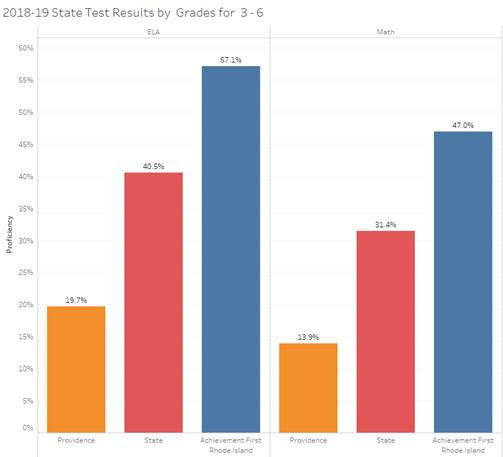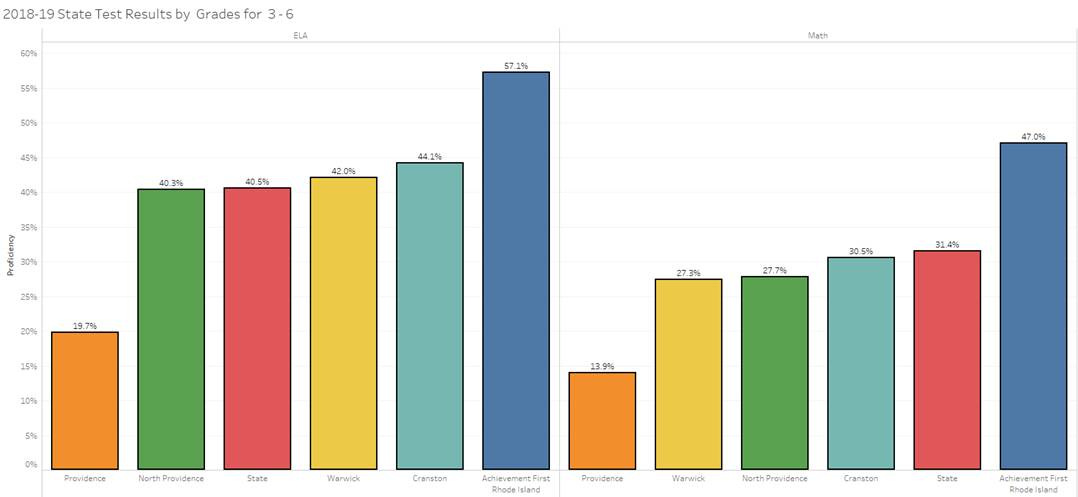When Education Reporters Don't Even Mention Student Outcomes
Charter expansion is hard to write about honestly if you don't mention any data.
I wish I could say I’m surprised that Linda Borg, education reporter at the Providence Journal, decided to write a whole piece about the proposed expansion of Achievement First without even a mention of the schools’ student outcomes and how they compare to those of students in their sending districts as well as across the state.
I suppose the thinking is that angry union missives and food fights over funding are more interesting to readers than whether or not students actually learn to read in the schools they attend. Why mention the utterly gut-wrenching reading and math proficiency rates in the Providence Schools when you can paint the picture of an upcoming political war? Well, we’ve seen that movie before and it’s boring. But worse than its predictability and yawn factor, it does nothing to improve the lives of children. On the contrary, these battles hurt families and hold children back from even having the opportunity to become the best version of themselves.
The 2019 Johns Hopkins report on the Providence Schools was so scathing that it made national news, left the jaws of seasoned education experts on the floor, and led to a state takeover of the district. Add to that a pandemic and parents need escape hatches to academically greener pastures now.
So let’s take a quick look at why Achievement First is deserving of an expansion and why the demand to attend is so high. Note that they outperform all of the districts they serve.


But that’s not all.
English Language Learners at Achievement First RI score proficient and above at 5x the rate of their peers across the state.
Achievement First RI students outperformed students in Massachusetts by 5% in math and ELA—the school leadership chooses to benchmark themselves against Massachusetts because they are a much higher performing state than RI.
Borg’s decision not to mention student outcomes, whether deliberate or unconscious, is both predictable and negligent. The promise of school is that students will learn when they go there—but Providence has shown, and the Hopkins report confirmed, that in far too many schools, there is “very little visible learning” happening.
On the contrary, there is a whole lot of measurable learning happening in the Achievement First schools. Perhaps next time the education reporter will include that in her story.



